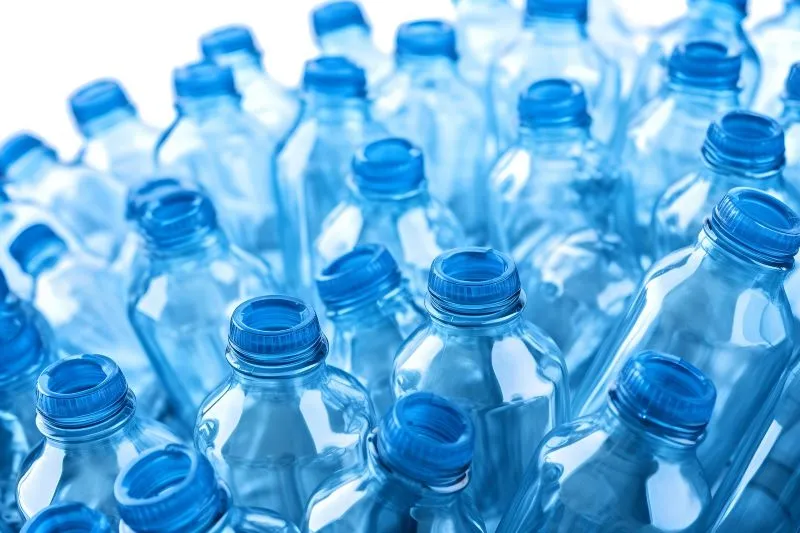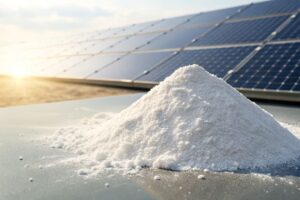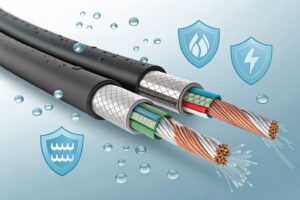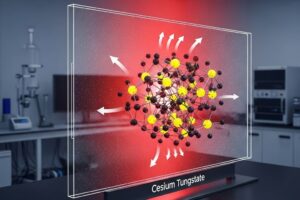Introduction
Recycled Polyethylene Terephthalate (rPET), a sustainable alternative to virgin PET, plays a crucial role in promoting a circular economy. It helps reduce plastic waste and decreases reliance on virgin materials. However, during recycling and reprocessing, rPET often suffers from aging issues, leading to reduced mechanical properties, lower intrinsic viscosity (IV), and poor processability.
The primary causes of rPET aging include thermal degradation, hydrolysis, and oxidation, all of which negatively impact product quality. To counteract these issues, epoxy-based chain extenders and polycarbodiimide anti-hydrolysis agents are highly effective solutions. This blog explores how these additives help reduce rPET aging, improve processing efficiency, and enhance product performance.
Understanding rPET Aging in Processing
During rPET reprocessing, such as extrusion and injection molding, polymer degradation can occur due to several factors:
1. Thermal Degradation
- rPET is exposed to high temperatures (above 260°C) during processing, which causes polymer chain scission.
- The material becomes brittle and difficult to process, reducing its overall mechanical strength.
2. Hydrolysis
- Residual moisture in rPET can trigger hydrolytic degradation at high temperatures.
- This leads to further molecular weight reduction and poor mechanical performance, making the material less durable.
see more about What is anti-hydrolysis agent – HyMax Anti-hydrolysis Additive
3. Oxidation & Contamination
- Through multiple recycling cycles, rPET may oxidize or mix with contaminants, further weakening the polymer structure.
The combination of thermal and hydrolytic degradation limits rPET’s use in high-performance applications such as bottles and films.
Role of Epoxy-Based Chain Extenders in rPET
What is an Epoxy-Based Chain Extender?
Epoxy-based chain extenders are reactive additives that help rebuild the molecular weight of degraded PET by forming new chemical bonds with polymer end groups.
How it Works:
- Degraded polymer chains contain an excess of carboxyl (-COOH) and hydroxyl (-OH) groups at their ends.
- Epoxy chain extenders react with these groups, linking fragmented polymer chains back together, thereby increasing molecular weight and IV.
Benefits of Epoxy-Based Chain Extenders:
✔ Restores Intrinsic Viscosity (IV): Helps rPET recover its mechanical strength.
✔ Enhances Melt Strength: Improves processability in extrusion and injection molding.
✔ Improves Mechanical Properties: Reduces brittleness and enhances impact resistance.
✔ Minimizes Yellowing: Reduces thermal degradation effects, maintaining material clarity.
By effectively rebuilding polymer chains, epoxy-based chain extenders significantly improve rPET performance, making it suitable for demanding applications.
Enhancing Hydrolysis Resistance with Polycarbodiimide
What is Polycarbodiimide?
Polycarbodiimide is a highly effective anti-hydrolysis agent that stabilizes rPET against moisture-induced degradation.
How it Works:
- Polycarbodiimide reacts with carboxyl (-COOH) groups, neutralizing their reactivity.
- This reduces the risk of polymer chain scission due to hydrolysis, enhancing material durability.
Key Benefits of Polycarbodiimide in rPET Processing:
✔ Protects Against Hydrolytic Degradation: Essential for moisture-sensitive applications.
✔ Improves Long-Term Stability: Helps maintain rPET’s properties in humid conditions.
✔ Enhances Processing Reliability: Prevents excessive IV loss during high-temperature processing.
Polycarbodiimide is particularly useful in applications such as food packaging and high-performance fibers, where moisture resistance is critical.
Conclusion
Processing rPET presents challenges due to thermal and hydrolytic degradation, which weaken the material over time. By using epoxy-based chain extenders and polycarbodiimide anti-hydrolysis agents, manufacturers can:
✅ Restore molecular weight and intrinsic viscosity (IV).
✅ Enhance melt strength and processing efficiency.
✅ Improve hydrolysis resistance for long-term durability.
✅ Enhance mechanical properties for high-quality applications.
Combining these additives is a cost-effective and efficient way for manufacturers to optimize rPET processing while supporting sustainability goals.
🚀 Want to improve the performance of your rPET? Contact us today to learn more about our advanced chain extender and anti-hydrolysis solutions!







